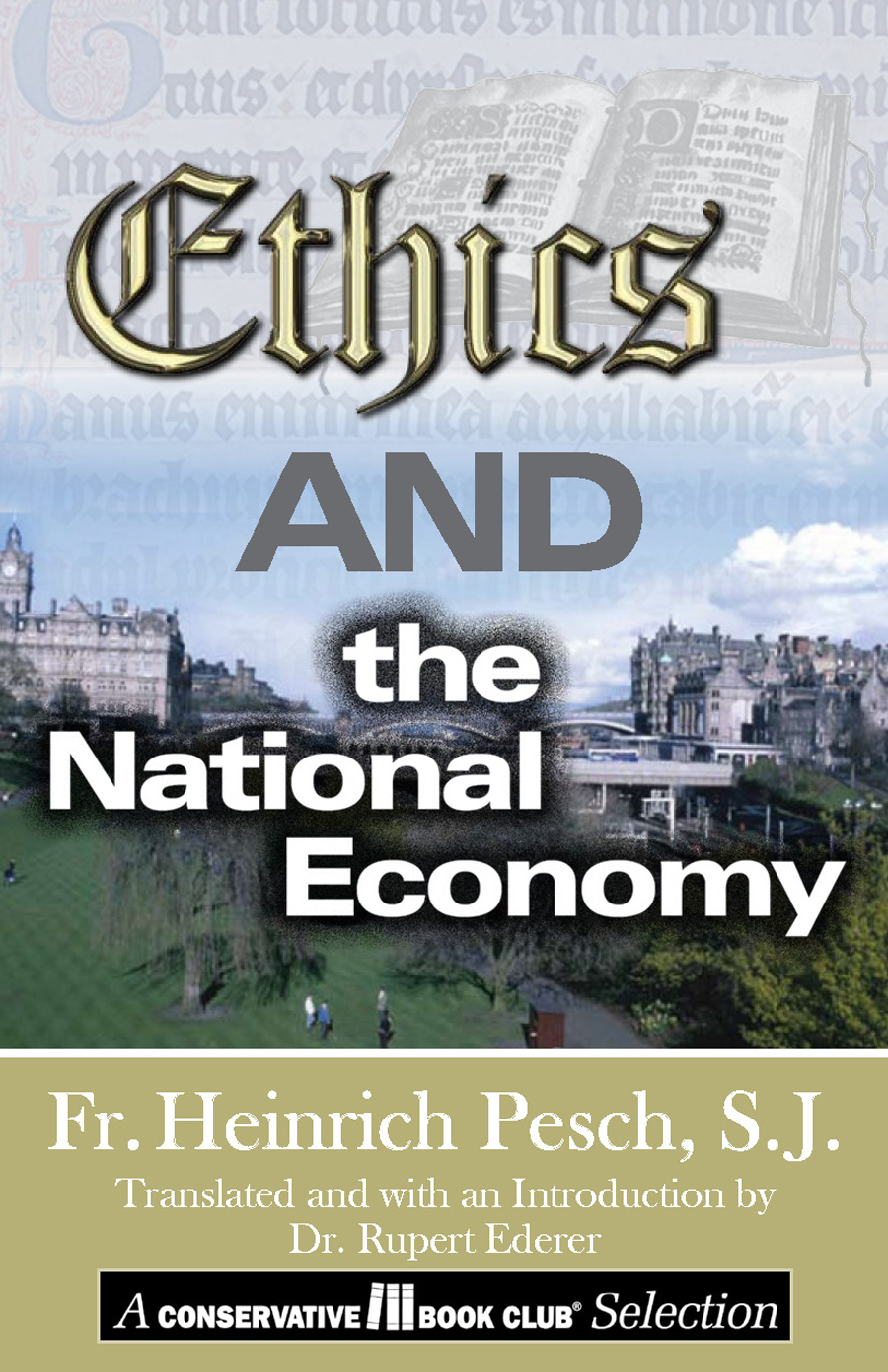
| ||||||||||
| ||||||||||
|
Click here at any time to see the contents of your shopping cart. |
Ethics and the National Economy was written by Jesuit Fr. Heinrich Pesch in 1917 as part of a symposium of Catholic thinkers on the problem of Christian Natural and International Law. His contribution stresses a truth which is as fundamental as it is today neglected: that morality must govern economic life. Taking apart the various aspects of economic activity, Fr. Pesch throws the light of the Moral Law on such topics as the manufacture of material goods, exchange of goods, remuneration and wages, justice in pricing, and—of course—he looks at what he calls the two “absurd consequences” of the individualist, free-market school of thought: Capitalism and Socialism. As greatest of philosopher-economists, whose “Solidarism,” introduced concisely and accessibly in this volume, is based upon the classical and Christian understanding of man and socio-economic life, rooted in the teaching of Aristotle and perfected by St. Thomas Aquinas, Pesch builds his thesis on solid philosophical—and ultimately, impregnable—grounds. Foreword —The Publishers Introduction to the Second Edition —Dr. Rupert Ederer Introduction to the First Edition —Dr. Rupert Ederer Preface —Heinrich Pesch, S.J. Introduction —Heinrich Pesch, S.J. I. Economic Life and Life in Society II. The State and the National Economy: The Purpose and Unity of the National Economy III. Human Wants and the Econom IV. Work and the Worker V. Ownership and the Acquisition of Material Goods VI. Justice in Pricing and in Income Determination VII. Justice and the Harmony of Interests VIII. Objections Raised Against Christian Ethics IX. Testimony By Economists In Support Of Christian Ethics X. Ethics and Economics XI. Capitalism and Socialism XII. The Economics of the Future | |||||||||||||||||||||||||||||||||||||||||||||||||||||||||||||||||||||||||||||||||||
| Attention bookstores: call or e-mail today for orders in quantity with the standard trade paperback discount: |
IHS Press 222 W 21st St. Suite F-122 Norfolk, VA 23517 877-IHS-PRES (877.447.7737) query@ihspress.com |
||

